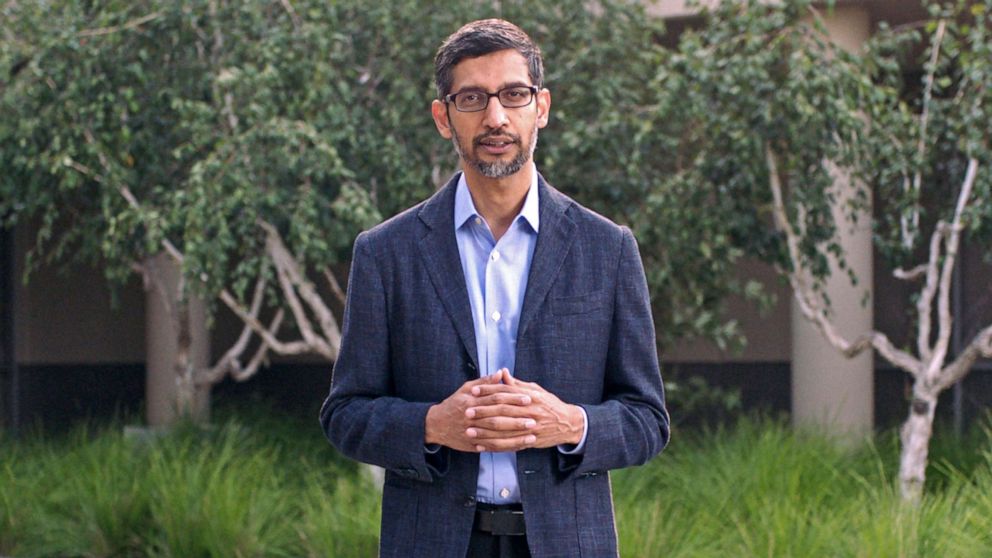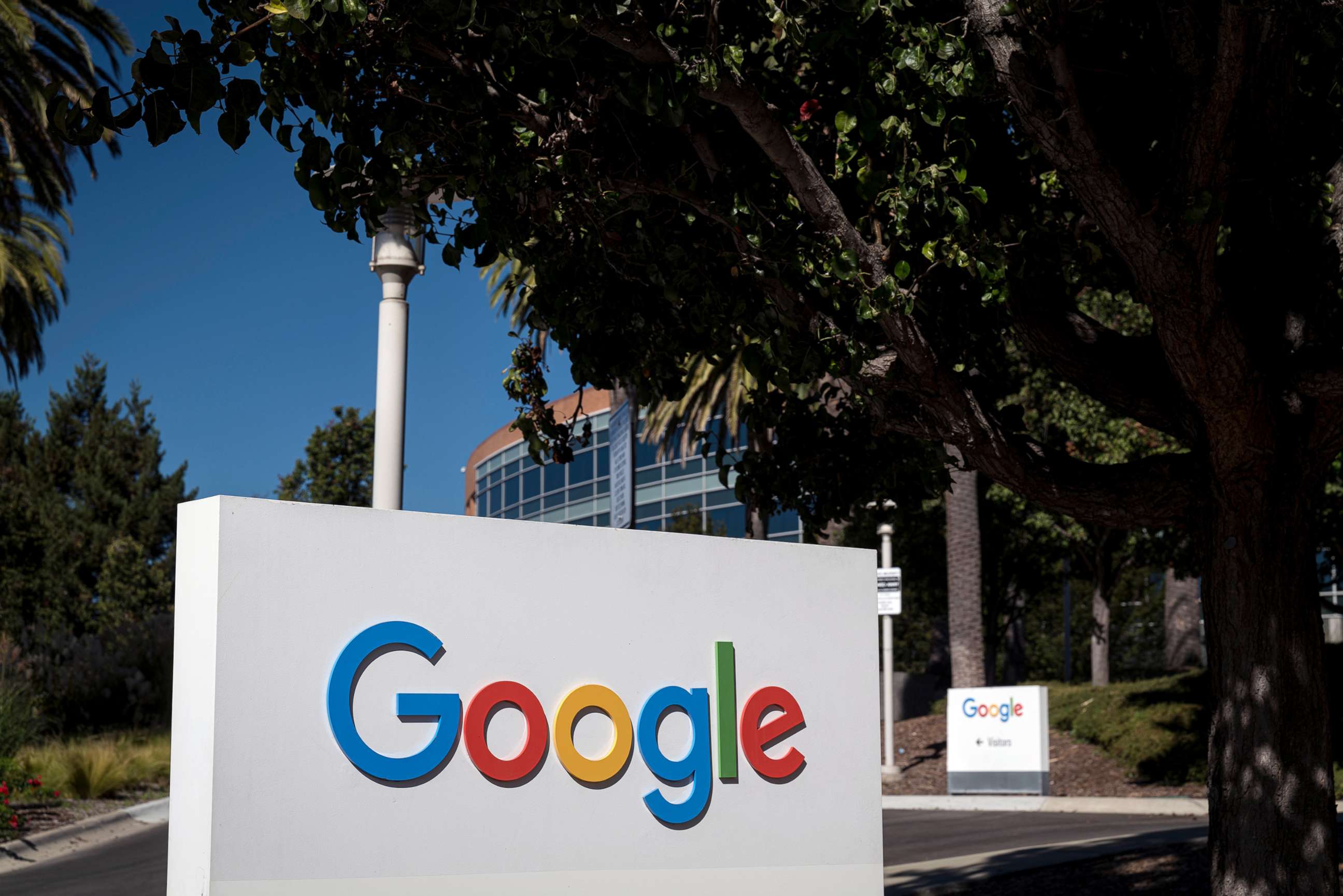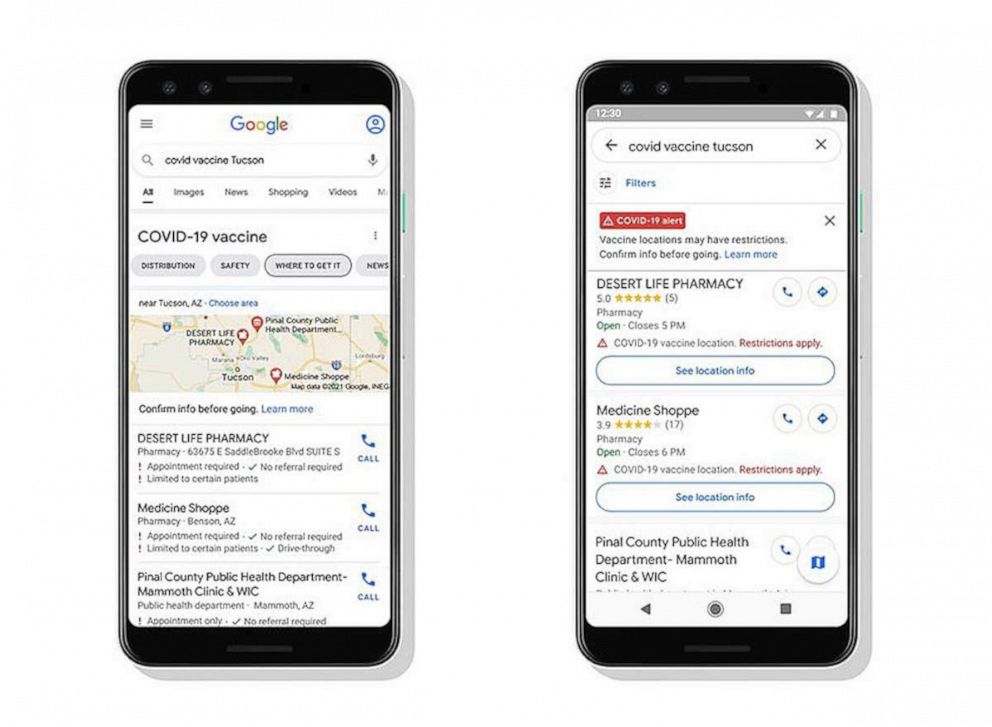Google pledges $150 million towards vaccine education and equitable distribution
The company also offered up its office spaces to become vaccine clinics.
Google announced a series of steps it was taking to support a more equitable and efficient rollout of the COVID-19 vaccines, including grants totaling $150 million, updates to its Maps software and offering the use of its office spaces to become vaccination clinics.
"The pandemic has taken a devastating toll on communities worldwide," Google Chief Executive Sundar Pichai wrote in a company blog post Monday. "While there is much uncertainty still ahead, the development of multiple safe vaccines in such a short time gives us reason for hope."
"Now the work begins to ensure that everyone can benefit from this triumph of scientific achievement, and quickly," he added.
Pichai noted that the company recognizes "that getting vaccines to people is a complex problem to solve, and we’re committed to doing our part."
While the rapid development of coronavirus vaccines is providing a glimmer of hope to a pandemic-battered nation, the rollout of the vaccines so far has been dogged by delays, confusion and misinformation.

Pichai said Google has committed $100 million in ad grants for the CDC Foundation, the World Health Organization and nonprofits around the globe to help boost information on vaccines. In addition, Pichai said the company was investing another $50 million in partnership with public health agencies to "reach underserved communities with vaccine-related content and information."
"Our efforts will focus heavily on equitable access to vaccines," Pichai wrote. "Early data in the U.S. shows that disproportionately affected populations, especially people of color and those in rural communities, aren't getting access to the vaccine at the same rates as other groups."
He added that $5 million has also been earmarked for organizations addressing racial and geographic disparities in coronavirus vaccinations, such as the Morehouse School of Medicine’s Satcher Health Leadership Institute.

In addition to the grants, Pichai said the company has expanded authoritative vaccine information on its search engine panels to more than 40 countries. Google will also begin showing state and regional vaccine distribution information via search so people can more easily find where they can receive a vaccine. A "Get The Facts" initiative puts out trustworthy information about vaccines.

Pichai noted that these efforts come after the company found that searches for "vaccines near me" have increased fivefold since the beginning of the year.
COVID-19 vaccination locations will soon be available in Google Search and Maps in the coming weeks, he added, and the company will start transforming select Google facilities into vaccination clinics as needed.
"These sites will be open to anyone eligible for the vaccine based on state and local guidelines," Pichai wrote. "We’ll start by partnering with health care provider One Medical and public health authorities to open sites in Los Angeles and the San Francisco Bay Area in California; Kirkland, Washington; and New York City, with plans to expand nationally."
Fellow tech giant Amazon announced a similar initiative last week.
Finally, Pichai lauded how the pandemic has "inspired coordination between public and private sectors, and across international borders, on a remarkable scale."
"We can’t slow down now," he added. "Getting vaccines to billions of people won’t be easy, but it’s one of the most important problems we’ll solve in our lifetimes. Google will continue to support in whatever way we can."




